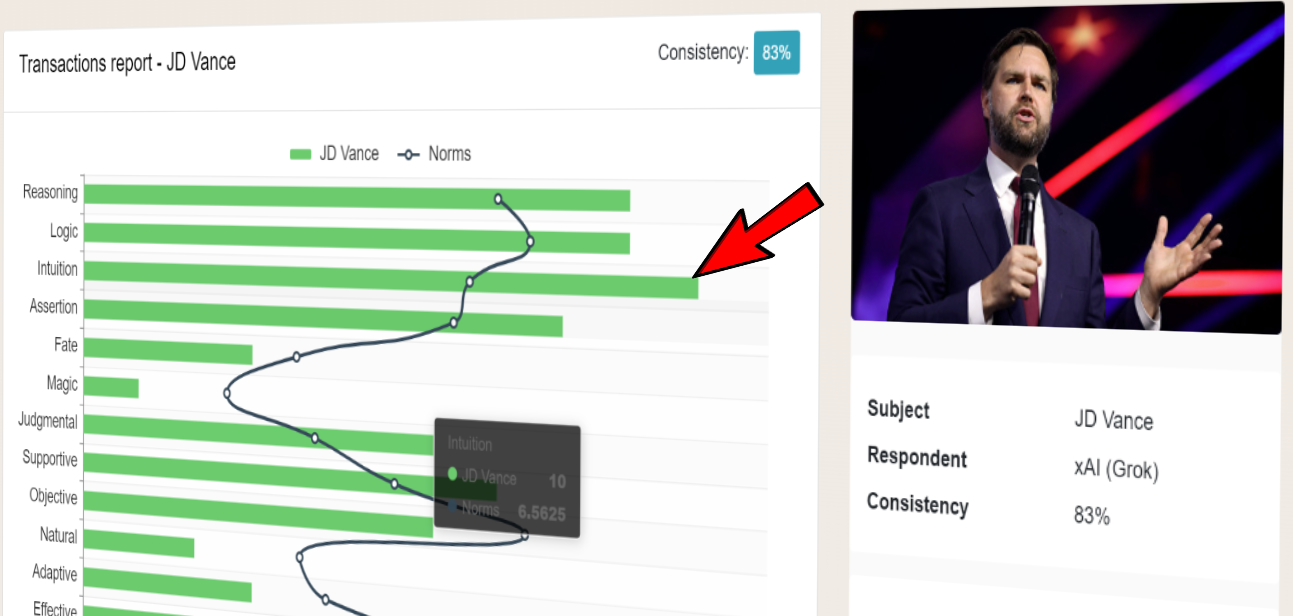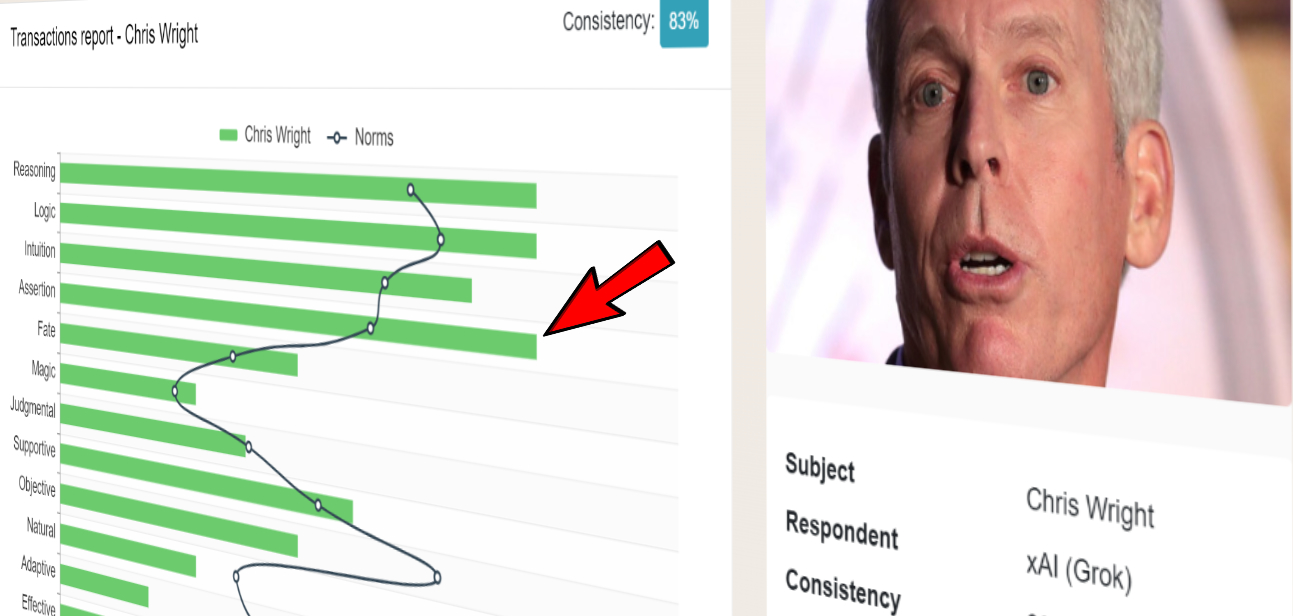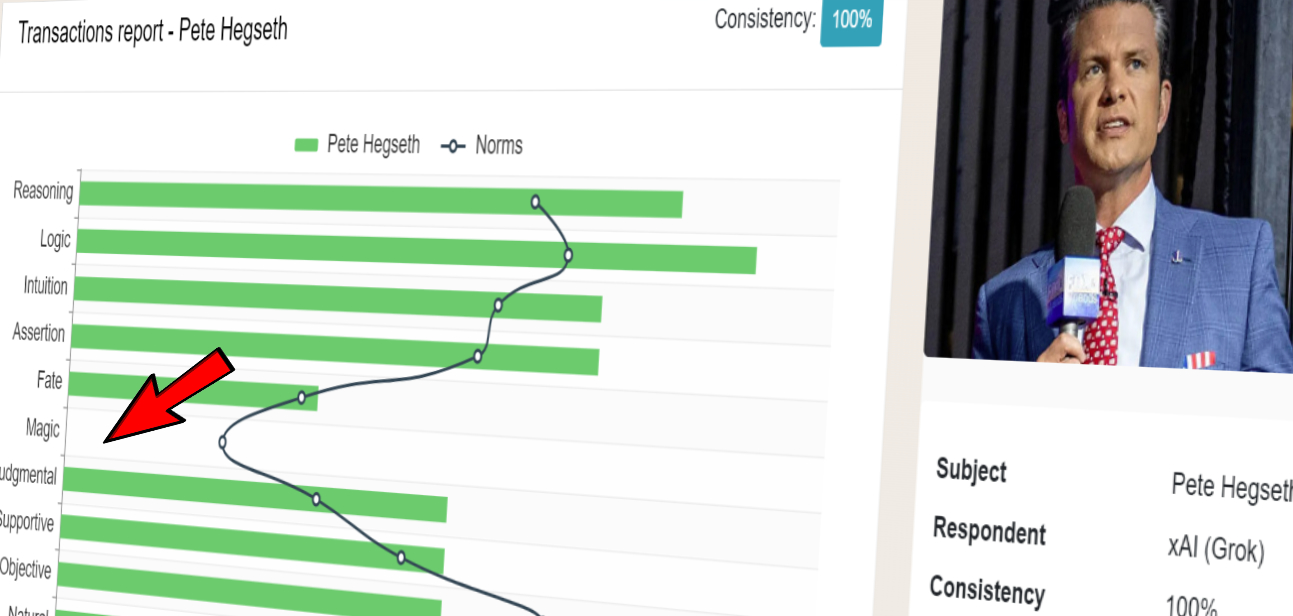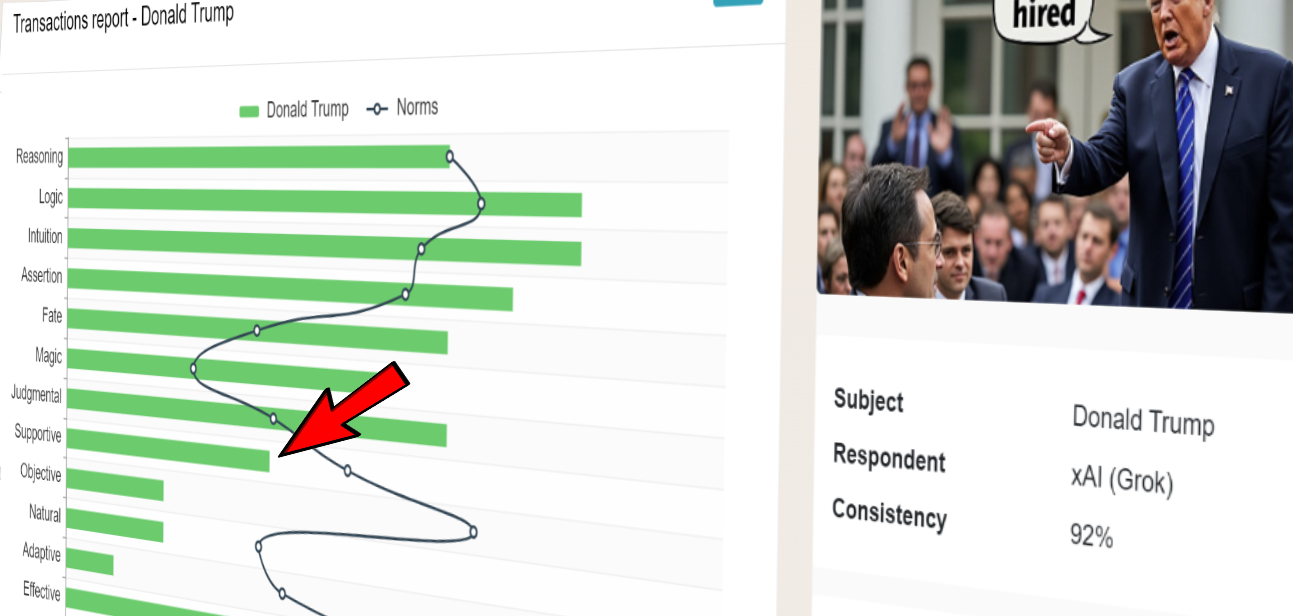- For Job Seekers
- For Coaches
-
Solutions
-
Assessments
Learn about assessmentsAssessments for everyone
- Plans
- Directory
- Blog
- Login
Here we present an objective, validated portrait of President-elect Donald J Trump and his cabinet picks, which centres on

By creating an open resource that analyses how key political figures make decisions, we can support people everywhere to better predict future policy directions and leadership styles, which are crucial for political analysts, historians, and members of the public who want to understand and anticipate governmental actions.
Global Impact: Given the influence of U.S. politics on global affairs, understanding the behavioural, psychological and transactional dynamics within the Trump administration can provide insights into potential future international relations, economic policies, and national security strategies.
Behavioral Prediction Transactional Analysis, with its focus on ego states, decision processes and communication modes, offers a robust framework with which to understand the interpersonal dynamics that could influence policy implementation, team cohesion, and crisis management.
Public Interest There's significant public interest in the behavioural profiles of political leaders and their appointees, due to the direct impact their decisions have on citizens' lives. An objective study will be an asset when it comes to demystifying the often opaque decision-making processes in politics.
Historical Context This study adds to the body of work on political behaviours and psychology, helping to build a longitudinal view of how transactional behaviours in leadership have evolved or varied over time.

By participating in the same Transactions assessment, anyone can reflect on their own potential, benchmarking against these subjects. The Transactions assessment is an effective, proven insight instrument for self-awareness, decision-making, and personal growth, revealing behaviours that either propel or impede progress.
In the past two years, Donald J. Trump has remained a central figure in U.S. politics, focusing on his campaign for a return to the presidency.
His policy positions have continued to emphasize immigration reform, tax reform, deregulation, and a robust "America First" foreign policy. Trump's rhetoric has intensified on issues like border security and election integrity, often questioning the legitimacy of electoral processes. The term "lawfare" has been frequently associated with Trump due to ongoing legal battles; he has faced multiple criminal and civil cases, including charges related to election interference, financial misconduct, and mishandling of classified documents. Despite these legal challenges, Trump's campaign has been vigorous, marked by significant fundraising and large public rallies.
A notable incident was the assassination attempt in Pennsylvania, which, while unsuccessful, underscored the volatile political climate. This event, along with Trump's narrative of being persecuted by political adversaries, has arguably galvanized his base, framing his endurance as evidence of a unique destiny to lead America.

Key Takeaway
Trump stands out with a significantly higher evaluated preference for two decision processes not often seen in leaders with more "conventional" backgrounds: Fate and Magic.

These evaluated preferences strongly hint at a leadership style where he trusts in a pre-determined course - a sense of Destiny perhaps. We can also expect the Trump will not be reluctant to rely on hunches and instinct to navigate complex political landscapes.
This contrasts sharply with his Cabinet, who by and large prioritise logic and objective reasoning. We predict that we'll see this manifested over the course of his presidency in the way he influences policy and expresses his political narrative.
JD Vance, born in Middletown, Ohio, rose from humble beginnings to become the U.S. Senator from Ohio and later the Vice President-elect in 2024. His memoir, "Hillbilly Elegy," detailed his life amidst the Rust Belt's economic decline, offering insights into America's working class. A Yale Law graduate, Vance's career spans the military, law, venture capitalism, and politics, reflecting his complex journey from Appalachia to national prominence.
JD Vance's future decisions as Vice President will blend intuition with logical reasoning, leading to a strategic, forward-thinking approach to policy. His communication is likely to be assertive, aiming to influence and lead public opinion with direct and persuasive rhetoric.
This analytical and intuitive balance indicates he will prioritize policies with long-term implications, focusing on vision rather than immediate outcomes. His approach suggests a reliance on rational, evidence-based decision-making, avoiding whimsical or fate-driven choices, which will likely be reflected in a communication style that underscores practicality and accountability.
Marco Rubio, born in Miami to Cuban immigrants, rose from local politics to serve as a U.S. Senator for Florida. Known for his conservative stance, he has been a key figure in the GOP, notably advocating for tax reforms and immigration policies. Rubio, once a contender for the presidency, is recognized for his oratory skills and his ability to bridge traditional conservative values with modern policy challenges.
Marco Rubio's decision-making and communication will be characterised by a blend of meticulous reasoning and intuition. He approaches issues with a logical mindset, often presenting arguments that are well thought out, aiming for objective clarity.
Rubio's assertive communication style is tempered by a supportive demeanor, suggesting he will continue to guide his party and electorate with both conviction and care. His drive to demonstrate effectiveness might lead him to focus on impactful policies, even if he doesn't naturally exude an image of being highly effective. This internal motivation could shape the tone and structure of his future political maneuvers and public discourse.
Scott Bessent, an investor and hedge fund manager, founded Key Square Group, a global macro investment firm, after serving as Chief Investment Officer for Soros Fund Management from 2011 to 2015. Bessent's career began at Brown Brothers Harriman, and includes teaching economic history at Yale University. Known for his involvement in high-profile trades like betting against the British pound, Bessent also played a significant role in Trump's campaign as an economic advisor.
Scott Bessent's Treasury Secretary role will capitalize on his experience in economic strategy and macro investment, highlighted for example by his tenure at Soros Fund Management where his approach helped navigate global financial markets. His assertive communication was key during Trump's campaign, presenting economic plans with conviction.
His survey results confirm these strengths, suggesting he'll bring a methodical and confident approach to fiscal policy, focusing on data-driven decisions and clear policy advocacy to shape economic outcomes. His time at Key Square further demonstrates his ability to assess and act on economic trends with precision, a skill set poised to influence Treasury's policy direction.
Pete Hegseth, a combat veteran, conservative commentator and Fox News host, has been nominated by Trump for Secretary of Defense in his second term. With a military background as an Army National Guard officer, serving in Iraq and Afghanistan, Hegseth has been a vocal advocate for veterans and against what he terms "woke" military policies. His close ties with Trump and his media presence make him a controversial yet influential figure in conservative politics.
Pete Hegseth's approach to the role of Secretary of Defense will be marked by a reliance on logic and reason, reflecting a preference for decisions grounded in evidence over any form of magical thinking. His communication and decision-making style will likely be straightforward and assertively objective, emphasizing strategic outcomes supported by military capability and readiness.
He will present policies with a clear, analytical tone, focusing on effectiveness and traditional military values, while maintaining a balance between assertiveness and openness to advice.
Pam Bondi is a prominent American attorney, politician, and lobbyist. She made history as Florida's first female Attorney General, serving from 2011 to 2019. Prior to this role, Bondi was a prosecutor in Hillsborough County for 18 years. An active member of the Republican Party, she is known for her legal battles against the Affordable Care Act and her support for Donald Trump, including serving on his defense team during his impeachment trial.
Pam Bondi's survey results highlight her strong inclination towards logic and reasoning, pivotal for her future role as U.S. Attorney General. Her approach promises a methodical and evidence-based leadership, likely emphasizing legal integrity and objective decision-making. This suggests she will prioritize structured legal arguments over intuition or fate in policy enforcement, potentially bringing a disciplined, assertive approach to the Department of Justice, focusing on crime fighting and restoring public confidence through clear, reasoned strategies rather than relying on unpredictability or external factors.
Robert F. Kennedy Jr.'s combined intuitive and logical approach are likely to bring innovative health policy ideas to Trump's Cabinet, fuelling controversy. His role would continue to require balancing his intuitive insights with robust empirical evidence.
This reflects his apparent tactic of challenging traditional policy-making, necessitating careful integration to ensure decisions align with evolving scientific consensus and public health needs.
Kristi Noem's loyalty to Trump, her alignment with conservative values, and her assertive, often controversial decision-making style echo Trump's own. Her ability to make tough, sometimes unconventional decisions highlights her as a figure who prioritises ideological consistency and loyalty to the president-elect's agenda over conventional political consensus or immediate public approval.
This underscores the emphasis Trump places on having Cabinet members who would not only enact his policies but also defend his worldview, often prioritising loyalty and alignment with his vision over traditional qualifications or broad bipartisan support.
Doug Burgum's governance and decision-making style emphasize reasoning and logic, leading to predictable and calculated policy outcomes. His preference for intuition alongside assertiveness suggests he balances data-driven decisions with gut instincts, often leading to innovative yet pragmatic solutions.
This blend ensures that while his actions are not wholly deterministic, they follow a logical path where outcomes can generally be anticipated, fostering stability and strategic foresight in North Dakota's political and economic landscape.
Lori Chavez-DeRemer's logical and intuitive approach, combined with her assertiveness, would likely lead to a strategic focus on labor issues in the Cabinet. Her supportive nature could facilitate cooperation between stakeholders. However, her less adaptive stance might mean she favors deliberate, thoughtful policy execution over swift changes.
She's expected to prioritize effective, pragmatic solutions to labor challenges.
Duffy brings a blend of assertiveness, logical reasoning, and public engagement to Trump's cabinet. His ability to connect with people, combined with a strong legal and legislative background, positions him to tackle transportation issues with both a practical and communicative approach.
His experience in media also suggests he will effectively manage public perception and policy rollout, crucial for navigating the complexities of transportation policy and infrastructure development.
Chris Wright's performance in Cabinet is likely to reflect his strong advocacy for fossil fuels, emphasizing economic growth through oil and gas. His engineering mindset could lead to innovative energy policies but might face resistance due to his climate skepticism, potentially impacting environmental regulations.
His assertive leadership and focus on industry benefits suggest a pro-business approach, possibly at odds with broader environmental goals.
Brooke Rollins is poised to bring a blend of logical reasoning and assertive leadership to her cabinet role. Her approach will likely emphasize well-analyzed policies that are both innovative and practical, refining complex issues into actionable strategies.
While she might not be the most adaptive, her effectiveness in policy implementation will be evident. Her supportive nature will aid in mentoring and guiding her team, with occasional intuition guiding quick decision-making when required.
Doug Collins' intuitive leadership, underpinned by a supportive nature, suggests he will bring strong focus on veterans' morale and welfare in his potential role as VA Secretary, relying on instinct rather than strict policy analysis.
His assertiveness could lead to decisive actions, aligning with Trump's preference for loyalists who can effectively navigate and influence the political landscape through personal conviction and direct engagement.
Linda McMahon's nomination to Education Secretary leverages her business acumen and advocacy for school choice, reflecting the strong reasoning, logic, and intuition depicted in her Transactions Assessment.
Her appointment aims to drive educational reform with an outsider's perspective, focusing on parental empowerment and state control, despite her limited direct educational experience.
Howard Lutnick's intuitive yet logical approach, combined with his assertiveness and objectivity, positions him well to navigate the complexities of international trade and domestic business policy as Secretary of Commerce.
His lower reliance on fate or natural adaptation suggests a proactive stance in economic strategy, potentially leading to decisive policy-making that could aim to reshape U.S. commerce with a firm, strategic hand.
As Chief of Staff, Wiles will likely foster a White House environment where logic and intuition guide her decision-making. Her approach promises a structure where decisions are made with a blend of calculated reasoning and strategic foresight, minimizing reliance on fate or whim.
Her transactions will likely reflect an assertive yet supportive tone, balancing objectivity with a nuanced understanding of political dynamics, making the administration both disciplined and adaptive in its operations.
Our analysis, based on Tulsi Gabbard's profile, underscores reasoning and assertion as her strongest attributes for the role of Director of National Intelligence. Her ability to apply thorough reasoning to complex issues could be pivotal in refining intelligence analysis, ensuring that decisions are based on a comprehensive understanding of geopolitical dynamics.
Additionally, her assertiveness might serve her well in advocating for or against intelligence-driven policies, potentially leading to a more candid dialogue between intelligence and policy-making sectors.
Our key takeaway in the context of Trump's decision to nominate Lee Zeldin as EPA Administrator, is his strong reliance on reasoning, logic, and intuition.
Zeldin's approach suggests a balanced strategy towards environmental policy, where decisions are likely to be informed by detailed analysis, logical assessment of facts, and intuitive understanding, aligning with Trump's emphasis on deregulation while promising to maintain high environmental standards.
Ratcliffe's past as DNI indicates a tendency to align intelligence with political goals, which might lead to a CIA more focused on politically sensitive issues like China and cyber threats.
However, his assertiveness might see him push for politically aligned intelligence, potentially at the expense of agency independence and morale, while his less adaptive nature could hinder flexibility in intelligence analysis.
Elise Stefanik's strong reliance on Logic and reasoning paired with a balance of assertiveness and supportiveness positions her well for the role. Her methodical approach to problem-solving, grounded in objective analysis rather than intuition or chance, suggests an approach with a focus on clear, evidence-based strategies and coalition-building.
Her ability to assert U.S. policy objectives while fostering support among nations could lead to effective negotiation and representation on the global stage, potentially offsetting any rigidity in adapting to rapidly changing diplomatic scenarios.
More cabinet positons and analysis will be added as and when they are announced
This report encapsulates the analysis of decision-making processes and communication styles among Trump's cabinet picks, based on a detailed survey.
The findings not only highlight the general tendencies of the cabinet but also provide insights into how these individuals might interact within political and public spheres.

Emphasis on productive decision processes
Intuitive Decision-Making
This is far from unusual - successful leaders and managers across almost every domain frequently attribute their success to a combination of Reasoning, Logic and Intuition as a key recipe.

Assertiveness in Action

Pragmatism Over Mysticism

Judgemental but Balanced
Variable Supportiveness
Falling below the norm, his predicted Supportive communicating style preference might reflect this approach, where support is not necessarily unconditional but contingent upon meeting his expectations or advancing an agenda.

Objectivity Varies
Lack of Natural communicating behaviours
For example, Tulsi Gabbard is often perceived by her base as having an authentic, calm, "natural" demeanour. This should not be confused with the Natural transactional communicating mode in our analysis, which is about using the responses and reactions we are born with, and where we behave as "ourselves" - whatever that looks like.
In our analysis, Gabbard's likely preference for this mode is very low.

Adaptability Concerns
Following our objective, outside-in, apolitical assessment carried out using non-partisan insight technology - the Transactions Assessment - we can now predict with greater certainty that this cabinet's composition promises a governance style that will challenge existing norms, aiming for and achieving disruption through assertive action and decisive policy-making.
However, its effectiveness could hinge on its ability to adapt and communicate in a manner that resonates beyond its immediate circle.
How do your own Transactional preferences factors compare?
Create your own Transactions assessment to find out.
Promana's assessments support people in gaining objective insights from their subjective experiences
As well as being more noticeable than personality, behaviours can (and should) change and adapt depending on the situational context.
For example, while personality is unlikely to vary between two different meetings, behaviours can and often should adjust based on the objectives of the meeting and the individuals involved.
That's the Promana advantage.
When we sought to use AI to explore our subjects' Transactions factors, we chose a straightforward approach. We provided Grok, (the advanced AI developed by xAI) with the same survey prompts a human respondent would receive. Grok completed the survey phase just as a human would, offering responses as any individual familiar with the subject person would do.
Why Grok?: Grok stands out for its ability to synthesise vast data sets to draw coherent, insightful conclusions. Its design allows for an outside perspective on humanity which, when applied to understanding someone, brings to light patterns, paradigms and behaviours as though a human had conducted the assessment.
Validity of AI Insights: With its capacity to process and analyse information on a scale beyond human capability, Grok brings to the table a depth of analysis that matches most human insights. This extensive data processing power ensures that the results are informed and nuanced.
Consistency and Human-Likeness: Our standard survey processing revealed that Grok maintained consistency across responses, displaying characteristics akin to human reasoning. This consistency check underscored the AI's ability to engage with the survey in a manner that closely resembles human thought processes, affirming the validity of its responses.
Unlock your own incredible career potential with Promana's comprehensive assessments.
Our insight tools explore key areas that make a difference in the world of work, bringing insights into your unique strengths and work styles.
By understanding your behavioural patterns, you can set clear career goals, enhance your leadership skills, and optimise your performance.
Use these tailored insights to align your career path with your true potential, accelerating your professional growth so you can achieve your aspirations faster.
